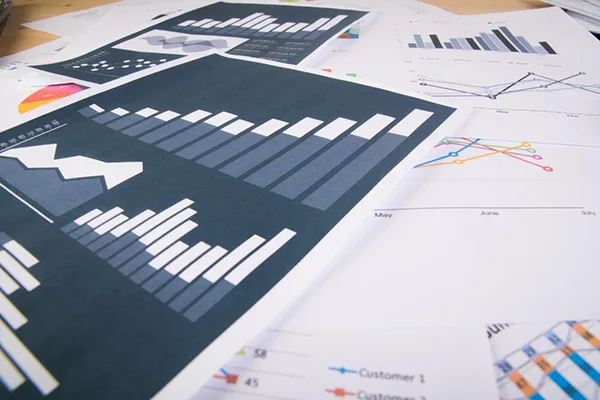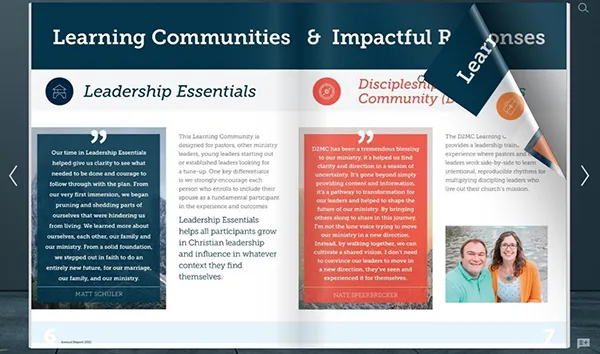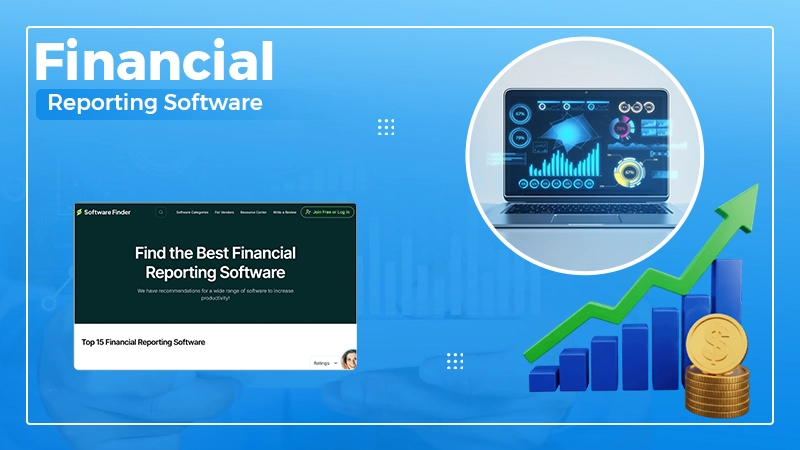
In the current business landscape, where technology is revolutionizing literally every other industry in the segment. Prioritizing financial technology is not just about following some random trend, but a deep necessity for all the survival and growth.
And, this is why it is not surprising that approximately 91% of the business are well-engaged in some form of technical advancement. While, on the other hand, 87% of the senior business leaders agree on the fact that digitalization is a must.
So, in this read, I will be highlighting the vital significance of digital transformation in finances. Along with how it is helping businesses succeed in the digital economy. Also, learn about Financial Reporting for Medical Services by reading this article.
Moving Beyond Static Reports
As a financial professional, you must embrace the rapid changes that are making waves in the market. And, leverage some of the modern financial presentations and reporting tools that will surely enable business managers to make meaningful decisions on time.
These tools act as a whole data warehouse that is often used to extract data from different systems CRM, ERP, GL payroll, and the list goes on. The best thing about such tools is that they are fully automated, which helps in reducing the overall time consumption and all the potential errors in data entering.
Additionally, to make your static reports more engaging to the audience you can also leverage the flipbook maker to convert the normal PDFs into some spectacular online flipbooks with a realistic page-flip effect.

Efficient Document Sharing
Document management plays a crucial role in a range of industries, especially in finances where you have to deal with a lot of numbers.
Document management as a whole consists of various strategies such as a systematic storage and retrieval of financial data. This may include all of the crucial business invoices, receipts, contracts, and statements. Here’s a perfect document-sharing method that can transform your productivity as a whole:
- Minimizing The Information Silos: Do you know, according to recent statistics by Gallup polls, one of the most common challenges that employees often face is reduced access to resources at work? And, this is why a business should focus on leveraging a perfect document-sharing method to keep everyone in the loop.
- Ensuring Document Security: While sharing a document, ensuring its security is crucial. This may include who can view and access which and what document. And, what kind of documents are available outside of the organization.
- Embracing Collaboration: Collaboration is also a critical component of a document-sharing method. This helps keep the document organized — and all that in the best working environment. This is why it is often advised to businesses to use a central platform or application for storing all the important slide decks, spreadsheets, and other documents.
Additionally, if you’re struggling with sharing a PDF document with your teammates, you can now create a PDF to a link without any attachment.

Visualizing Data Effectively
Effective data visualization is critical, especially in the financial sector where the data is always in abundance.
effective data visualization allows financial professionals to conclude the latest trends, explore insights, and communicate all of their complex findings through an interactive dashboard design. It is a crucial process for the decision-makers; it provides them with some actionable intelligence to make strategic initiatives.
Real-Time Data Integration
Real-time data integration of the financial data contributes to the effective decision-making process. An active data integration into the system also allows investors and stakeholders to take a closer look at how their investments are performing. This also allows them to gain current insights without waiting for the periodic reports.

Boosting Collaboration and Accessibility
Collaboration is a vital key for overall business productivity, and the financial sector is no exception. An effective collaboration technique can help businesses make better financial reporting, while it may also contribute to high-quality data visualization.
To make your team collaboration more efficient, you must define the purpose of your financial reporting, analyze all the key collaborators and stakeholders, set some clear-cut objectives for your project, and of course seek and provide constructive feedback.
Additionally, it is also important to analyze your progress from time to time in the project, as this will help enhance the overall quality of your project. By following these tips and strategies, you can ensure effective team collaboration with impactful financial reporting.
Looking to the Future
Technology is rapidly changing the landscape of financial reporting, and in this ever-evolving field, professionals are required to acquire a range of new skills and strategies to remain competitive in the market. As technology rapidly evolves in financial reporting, professionals need adaptable skillsets. This includes not only data analytics and cybersecurity but also digital communication skills and familiarity with technologies like AI, blockchain, and cloud computing. To ensure you are well-prepared for these changes, consider engaging in cloud computing training online, which provides the necessary knowledge to stay competitive..
Conclusion
In closing, a proper implication of technological advancement in financial reporting is essential for a more in-depth examination of the company’s financials. These latest advancements in the market have been revolutionizing the whole collection, analyzing, and presentation of financial data. However, to properly leverage these tools, professionals must adapt their skills accordingly.





